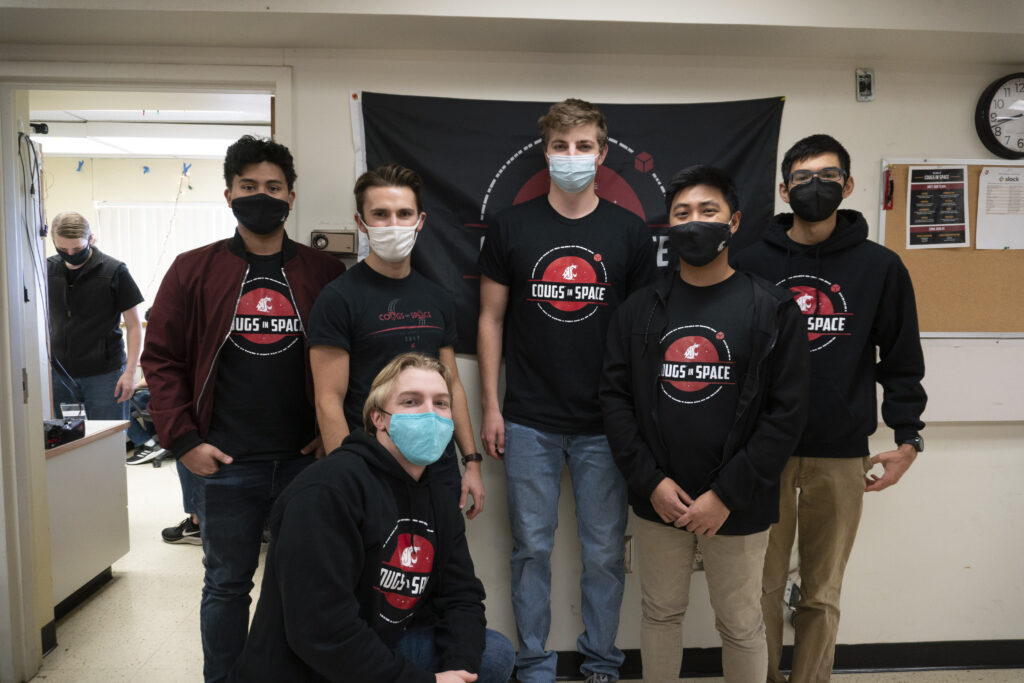A WSU student team is building small satellites about the size of a Kleenex box that they hope to someday launch into space.
Along the way, they’re gaining hands-on skills, industry connections, and internships that can help launch their aerospace careers.
A group of students from the Cougs in Space club will head to NASA’s Marshall Space Flight Center in Huntsville, Alabama, over spring break where they’ll get a chance to test a propulsion system that they’re building for the satellite project.
“There’s a need for this technology and people who are experienced with it,” said Colin Warn, a WSU alumnus (’21) who led development of the propulsion system as an undergraduate and is now advising on the project.
With support from Blue Origin, the Voiland College of Engineering and Architecture shops, and the Coug Parents program, the students will be testing their propulsion system that they developed in a vacuum chamber at NASA. They will also tour Blue Origin’s facilities while in Huntsville.
Since 2017, the club has been working to develop small satellites that can be launched to space as part of NASA’s CubeSat Initiative. More than 60 students participate in the club from a variety of majors, including mechanical, electrical, and computer engineering, and computer science.

While most rockets use solid or liquid fuels for propulsion, the electric propulsion system the students are developing uses an electro-magnetic field to move a vehicle through space, said Warn.
Similar to the difference between a speed boat and a tug boat, the electric propulsion system does not have as much force but is much more efficient than traditional fuel-powered propulsion, said AJ Aukusitino, a sophomore in mechanical engineering and team lead on the project. Another advantage of electric-powered propulsion is that a spacecraft using it wouldn’t require that all the fuel be on board, which is one of the biggest challenges for long-distance space travel. Instead, for an electric system, the electric energy for propulsion can be made via solar power or even from a distant laser. While the technology is not as developed as more traditional propulsion systems, an electric system could also theoretically speed up travel to distant destinations in space, added Brett Redman, a sophomore in mechanical engineering who is also working on the project.
When Warn came to WSU, he had a background as a music producer, an interest in aerospace engineering, and no experience with engineering.
“I literally couldn’t tell you the difference between bolts and a screw,” he said. “I probably knew less than middle schoolers on a robotics team.”
The club gave him valuable hands-on experience and networking opportunities that have since allowed him to launch a career in space technology. When he was given the chance to attend a conference on space technology, he met Dan Lev, a research engineer at Georgia Tech, who offered to mentor the students on development of the electric propulsion system. He is now working at Maxar Technologies, a space technology company.
“This is something where if you are willing to learn, stay humble, and put in some good work, you have the chance to learn,” Warn said. “Now, I’m literally getting paid to do this.”
Students interested in Cougs in Space are welcome to attend the meetings, which are held on at 5:30 p.m. on Wednesdays in Spark 327.





